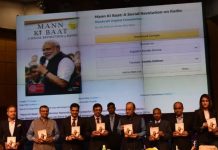Judge Krishna rightly observed that sports betting and matchfixing generates huge amounts of black money, which is initially transferred through hawala, and later laundered to transform the dirty money into assets that appear legitimate. Delhi Police tried to prove the use of hawala and moneylaundering through sms between several alleged bookies. However, it failed to link these mobile messages with actual illegal transfers or legal deals to wash the money.
“Sending of sms without there being corroborative evidence in the nature of bank accounts, money transactions or other manifestations of this money in material form, cannot be considered as sufficient evidence to make out even a prima facie case of hawala being done… It is significant to note that Sanjay Agarwal @(alias) Chhotu was alleged to be the face for investment for this illegal money, but investigations have not revealed amassing of any property or money in the bank accounts which was not accounted. Likewise the property details of Ashwani Agarwal (alleged bookie) do not reflect any disproportionate investment or wealth,” said the order.
DOES A GLOBAL CRIME SYNDICATE EXIST?
The Delhi Police tried to bring in the accused under the umbrella of organised crime, which was controlled by a global crime syndicate, headed by Dawood Ibrahim, India’s most-wanted and his henchman, Chhota Shakeel. This enabled it to invoke specific clauses of mcoca, along with the ipc. Since the punishment under mcoca is more stringent than the ipc and Gambling Act, the idea was to link match fixing and illegal betting to an organised gang.
Sadly, this proved to be the undoing of the police case. The fact is that it is almost impossible to prove the existence of a global organised syndicate, unless the investigations are spread out across the globe. To be watertight, the Indian police needed to involve dozens of other nations whose intelligence and police agencies actively cooperate in the investigations. This was obviously not done in this case. All that was alluded to were a few mobile numbers, allegedly used by Dawood and Shakeel, a few conversations, some of them innocuous, and voice recognition of Dawood in one of the conversations.
~Also Read~
[egpost postid=”249092″ byline=”false”]
This wasn’t enough for the sessions court. It pointed out that there are no phone transcripts that involved Shakeel or connected him to Dawood. Most of the other accused, including cricketers and bookies, never had any direct or indirect links with either Dawood or Shakeel. The whole chain-of-command structure was based on a single link between the dons and bookies; it was link that had several cracks. Therefore, the whole command matrix fell like a house of cards.
While it is fashionable and exciting to prove the existence of global organised gangs, there is not enough evidence about them, even internationally. A few academics in mafia theory have argued that organised crime needs to be organised and centralised because of intrinsic reasons. They contend that such organisations “seek to govern and control the whole economic structure of the underworld”. This happens due to the notion of “exclusivity” or monopoly, and a “rule-making role” through the “organised use of violence” to impose the monopoly.
Some of the other advantages, as mentioned in the book The Economics of Organised Crime include: economies of scale; exploitation of monopolistic prices; internalisation of negative externalities; avoidance of resource dissipation; better management of portfolio of risky activities and easier access to national and international financial markets.
But empirical data suggests that “there are strong forces which push the criminal organisations away from a high degree of central coordination”, says the authors Gianluca Fiorentini and Sam Peltzman. It adds that the reasons for inherent desire for decentralisation include: direct proportion between risk and size; ill-defined property rights because of the huge size; higher risk of detection because of the number of people involved in the illegal activities and; problems with the financial markets if one deals with huge amounts.
LAWS WITHIN LAWS
A crucial issue in India is that there are no specific laws to deal with illegal betting, gambling and match fixing. The punishment under the Gambling Act are minimal — imprisonment for a few months. The IPC has specific clauses but they lead to charges of lesser crimes. Therefore, the investigating agencies have this urge to book the culprits under the stricter acts like mcoca, money laundering and others. So, several critics have argued that India needs specific laws to deal with sports betting and fixing.
This was clear from the lawyers’ pleas in the 2013 match fixing case. Several of them argued vehemently that “the engaging in betting in a game of cricket which is a game of skill, is any way not an offence under Section 12 of the Public Gambling Act.” Section 12 of the act, which was promulgated in 1867, states that the act will not apply to certain games “of mere skill wherever played”. A few states like Himachal Pradesh, Haryana and Punjab have their own specific amendments to it.
However, a caveat needs to be mentioned here. Mere acts are not likely to solve the problems. For example, India has the most stringent narcotics laws, compared to other nations, but the crime of illegal drug trafficking hasn’t reduced over the past few years. It is the implementation of the acts, and enhanced evidence-collecting skills among the investigating agencies that are important. An alternative is to amend some of the existing laws to address the issue of fixing and betting in sports.
But before the country gets to that stage, there is a need to clean up the non-transparent and sometimes corrupt sports bodies, which are wracked by political and commercial influences. The controversies that engulfed the BCCI over the past years — which involved Lalit Modi, the former IPL head, and N Srinivasan, chairman, ICC— prove that changes are required.
The Justice Mudgal Committee, which was appointed by the Supreme Court to look into charges of matchfixing in ipl, set the ball rolling through its specific recommendations. Lodha Committee, another one appointed at the behest of the apex court, can complete the process as it was asked to suggest changes in the BCCI constitution to make it more transparent and effective. Let’s hope that the Supreme Court jumps out to hit the googlies bowled in the past by the bcci over extra cover.
editor@tehelka.com













